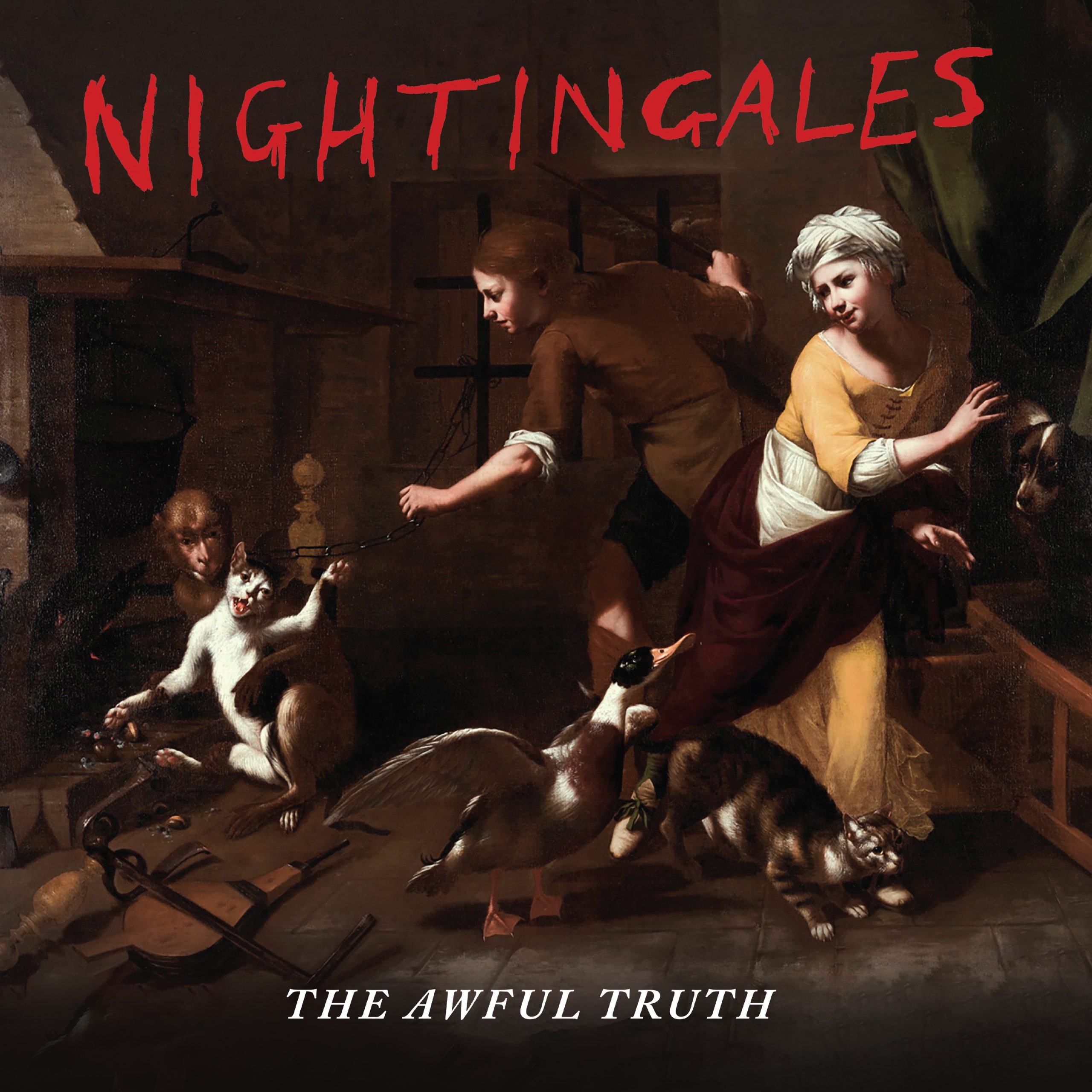The Breakdown
The Nightingales return with The Awful Truth, their first album since 2022’s The Last Laugh, proving once again that Robert Lloyd and company remain as sharp, unpredictable, and essential as ever. Released on Fire Records, the album is a tangled, exhilarating mix of post-punk urgency, surrealist storytelling, and skewed pop sensibilities—an acerbic, sideways glance at modern life delivered with Lloyd’s unmistakable growl. As ever, The Nightingales feel like a band operating entirely on their own terms, drawing from an eccentric blend of influences while sounding like no one but themselves.
From the opening moments of The Emperor’s New Clothes, the album bursts into life with a driving, melodic energy, layered with playful riffs and Lloyd’s gruff yet oddly endearing vocals. The playful grit of the track sets the tone for what follows—songs that feel loose and spontaneous yet meticulously constructed. Same Old Riff leans into Mark E. Smith territory, a wry, self-deprecating slice of post-punk repetition with an infectious bounce. The Nightingales’ offbeat theatricality is in full force on The Gates of Heaven Ajar, where scattered percussion and spidery guitars give way to a tuba-led strut, its half-spoken delivery adding a strange charm reminiscent of The Bonzo Dog Doo-Dah Band. Meanwhile, The Men, Again swerves between jittery experimentalism and an almost danceable pop chorus, bringing to mind both The Fall and Cardiacs in its off-kilter dynamism.
Musically, The Awful Truth thrives on contradictions. The Best Revenge stitches together dissonant bass and guitar lines that shouldn’t work, but somehow do, held together by insistent drums. The cinematic Just Before slows things down, its circling guitars and spoken-word delivery evoking Nick Cave at his most brooding. Warm Up starts in a chaotic whirl of noise and spoken word before morphing into a driving punk blast, while Joyce rides a tight, buzzing post-punk riff before collapsing into a cosmic freakout. All Smiles and The Limpest Bark explore more straightforward indie pop and noise rock textures, yet each carries that signature Nightingales unpredictability—melodies take unexpected turns, rhythms shift suddenly, and Lloyd’s vocals guide the chaos with knowing ease.
Lyrically, Lloyd remains a master of acerbic observation, his words darting between surreal humor, social commentary, and poetic absurdity. Tracks like The Princess and the Piss Artist play with genre expectations, delivering something that feels both playfully ragged and strangely poignant, while Giddy Aunt juxtaposes male/female vocal exchanges with sharp, twisting indie rock. The closing track, The Morning After Mouth, brings things to a bubbling, proggy conclusion—an art-rock detour that underscores the band’s relentless creativity.
With The Awful Truth, The Nightingales continue to defy expectation, making music that is at once challenging and deeply enjoyable. It’s an album that refuses to sit still, balancing jagged experimentalism with moments of unexpected pop clarity. In a world where so much post-punk revivalism feels like an echo of the past, The Nightingales prove they are still very much in the present, forging ahead with wit, invention, and a total disregard for convention. Their time, as the legendary John Peel always predicted, has indeed come.

















No Comment